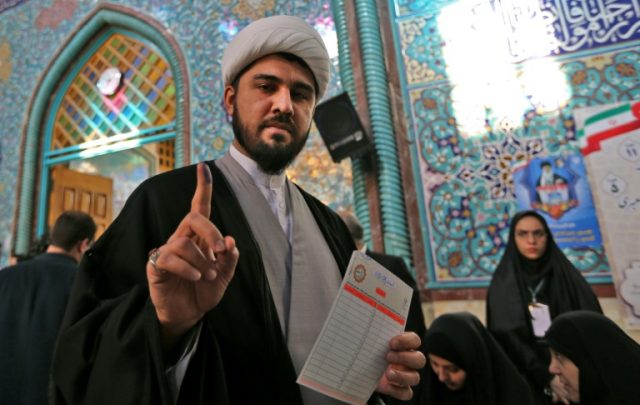aljazeera– Tehran, Iran – With a little more than half a year remaining until Iranians head to the polls to choose their next president, the country’s conservative parliament and its speaker have scored a significant political victory – one that could swing hearts and minds in the economically troubled nation in their favour.
Last week, the Guardian Council – a 12-member oversight body that vets proposals approved by the parliament- approved a plan for government-funded monthly cash payouts to struggling Iranians.
The programme will cost an estimated $1.5bn and give 60 million of Iran’s roughly 85-million population a much-needed cash-injection of up to $5 a month – roughly one-fifth of the national minimum wage – to help pay for essential goods.
Payments are due to begin in approximately two weeks.
The subsidy is designed to ease pressure on low- and middle-income Iranians who have seen their purchasing power severely eroded in recent years by a toxic combination of United States sanctions, the COVID-19 pandemic and government financial mismanagement.
While the need for aid to help pay for essentials is undeniable, the subsidy programme has been the subject of political infighting for more than a year.
But the deadlock has been broken as Iran’s moderate government and its newly elected conservative parliament vie to convince citizens that they are the better stewards of the country’s embattled economy.
Political infighting
The subsidy plan was first proposed more than a year ago by the government of President Hassan Rouhani, who wanted to ensure that people could still afford food and other essentials as inflation spiralled.
But that plan – dubbed the electronic coupons scheme – was ultimately abandoned.
The last time Iran instituted a coupon scheme was during the eight-year Iran-Iraq War that ended in 1988. The Rouhani administration feared a new scheme with a similar name would have a negative psychological effect on the population by drawing comparisons with that profoundly challenging economic episode in the country’s history.
Funding the programme was also a point of contention.
In May 2018, US President Donald Trump unilaterally withdrew from a landmark nuclear deal signed between Iran and world powers and embarked on a “maximum pressure” campaign of sanctions aimed at weakening Iran’s economy.
The sanctions have been relentless, leading to a freefall in the rial and high unemployment.
But most political calculations changed after conservatives and hardliners won an overwhelming majority of parliamentary seats during elections in February that saw the lowest voter turnout in the history of the Islamic Republic.
The new parliament speaker, Mohammad Bagher Ghalibaf – who many observers believe could make a run at the Iranian presidency during June’s elections – revived the proposal for a coupon scheme.
Ghalibaf, who ran against Rouhani in the 2017 presidential race, as well as other conservative members of parliament, have been fervently bashing the government’s handling of the economy.
The mudslinging became so heated that Supreme Leader Ali Khamenei intervened last month, saying the insults had gone beyond acceptable criticism and constituted character attacks that are not acceptable.
Though the negative rhetoric toned down, Ghalibaf pledged to fast-track the subsidy plan, which parliament then submitted to the Guardian Council earlier this month.
The Council rejected the proposal initially, citing the potential hit to already fragile government finances and the lack of resources to sustain cash payouts.
That prompted the head of the government’s Plan and Budget Organization to write a letter to Ghalibaf, saying that “instead of handouts and subsidies from their officials, the people want sanctions to be lifted”.
In late October, government spokesman Ali Rabiei threw more cold water on the scheme, saying it would bring “immediate satisfaction but long-term bitterness” to the Iranian people.
But parliament persisted and sent back a revised version of the plan to the Guardian Council – this time with the suggestion that the subsidy for essential goods be funded by the sale of government shares in petrochemical and industrial firms, as well as banks, and insurance companies.
The Council relented and gave the programme the green light.
Ghalibaf highlighted the victory on Twitter, writing: “The hope is that through a full cooperation between the parliament and government, the plan will ease a part of pressures on the people and through providing their needed essential goods, prevent shrinking of households’ livelihoods.”
Subsidy on top of subsidies
The cash payments won by parliament are not the only help on tap.
Welfare benefits initiated by former President Mahmoud Ahmadinejad more than 10 years ago are still in force.
And last week, President Rouhani said the government will soon start doling out one million rials ($4) a month in COVID-19 relief aid after new nationwide restrictions and curfews were implemented to curb the virus’ spread in Iran – the hardest-hit country in the Middle East.
Iranian economist Meysam Hashemkhani told Al Jazeera it is no surprise that political rivals in the government and parliament are competing over boosting cash subsidies before the presidential elections.
However, he cautioned that such schemes can only work if policymakers manage to earmark transparent, sustainable ways to fund them, including slashing government spending on other programmes or increasing corporate taxes to raise revenues.
“If political groups promise the Iranian people they will increase cash subsidies in the run-up to the presidential elections but don’t specify exact budget sources, they will have to pay for the subsidies through having the central bank print more money,” Hashemkhani said.
“That would be very bad and will only lead to more increases in inflation in Iran.”







